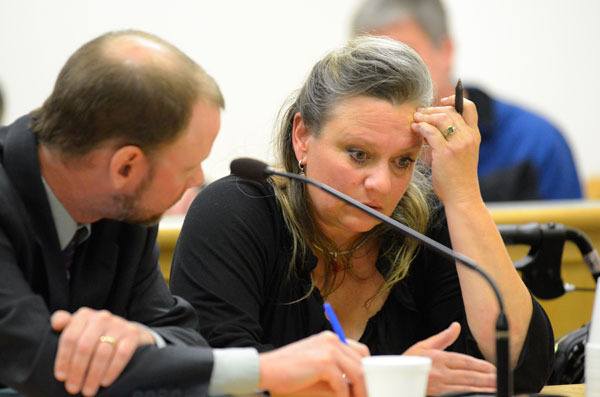Whether or not Michelle Nichols’ blood results from a fatal car crash will be admissible in court remains unknown this week.
An evidence suppression hearing wrapped up in Island County Superior Court on Wednesday. And while it appeared briefly that a judge would issue a ruling immediately, she elected instead to release a written decision later.
“I’m going to take some more time and do this right,” Judge Vickie Churchill said.
Family members of the victim were in attendance but declined to comment. Chief Criminal Prosecutor Eric Ohme, however, said he wasn’t surprised by the judge’s decision due to the complexity of the issues argued. He didn’t speculate on the outcome.
“We’ll see when the court rules,” Ohme said.
In an email to The Record on Friday, Langley defense attorney David Carman wrote the testimony during the motion described the facts as the defense anticipated. He also declined to weigh in on how the judge might rule.
“Unfortunately, I got out of the predicting judge and jury decision business a while ago, so I can’t comment on what the judge will rule,” he wrote. “Once we have a ruling, I expect both sides will have to assess its effect on their cases and figure out their next steps.”
Nichols, 47, is charged with vehicular homicide and is accused of driving drunk in a 2015 collision that killed Freeland resident Tim Keil, 61. The crash occurred on Valentine’s Day on Highway 525 just north of the intersection at Coles Road.
Police took Nichols’ blood hours after the crash without a warrant, claiming a special exemption to Fourth Amendment search and seizure requirements. Her defense attorney now contends that police lacked the probable cause necessary to justify the blood withdraw and motioned to exclude the evidence.
The toxicology results in question reveal Nichols had a blood alcohol content level of .11 about four hours after the accident, and after having received two “bags” of blood. The state limit is .08.
The evidentiary hearing that followed lasted about six hours, and was held over the course of two days — last week Friday and this past Wednesday.
The hearing revolved around the testimony of three Washington State Patrol officers, Trooper Nick Hagg on Friday and Troopers Ryan Hagreen and Detective Jeffrey Rhue this week. The focus was on what happened, what they knew and when they knew it. Carman argued extensively that state police’s only evidence was a single person who said they could smell alcohol on Nichols’ breath and another who reported seeing her at a drinking establishment earlier in the evening but couldn’t smell intoxicants.
Citing the times of numerous calls among coordinating officers, and the subject of those conversations, Carman said police gained shaky evidence after the crash but learned nothing more over the next two hours before the decision was made to withdraw Nichols’ blood. Troopers were using that time to gain new evidence because they knew they lacked probable cause, but they never got anything more, Carman said.
Rhue, a detective who specializes in felony accidents, assisted the lead officer on the night of the accident. He acknowledged hearsay claims of odor and sightings at a bar but not actually drinking had him “on the fence,” but that he changed his mind when he learned about other factors, namely the history of the accident site. Hagg told him the area, which is straight with good visibility, is rarely the location of accidents.
Combined with other evidence, from Nichols’ admission to an ambulance worker that she’d been drinking to the dry road conditions and knowledge that she’d had a past DUI charge, Rhue said the “totality of circumstances” convinced him that they had enough to proceed.
“Did you believe you had probable cause, as weak as it was?” Ohme asked.
“Yes,” Rhue said.
In his closing arguments, Ohme said police acted “cautiously” and “responsibly” and shouldn’t be penalized for their work. Considering the totality of circumstances, a “reasonable officer” would make the same conclusions.
“Probable cause doesn’t require proof, obviously, only a probability,” Ohme said.
Carman argued no one is faulting police for their work, that they did everything they could to develop a solid case. It just wasn’t enough to meet the burden of probable cause, he said.
“They needed more evidence and they knew it,” Carman said.



